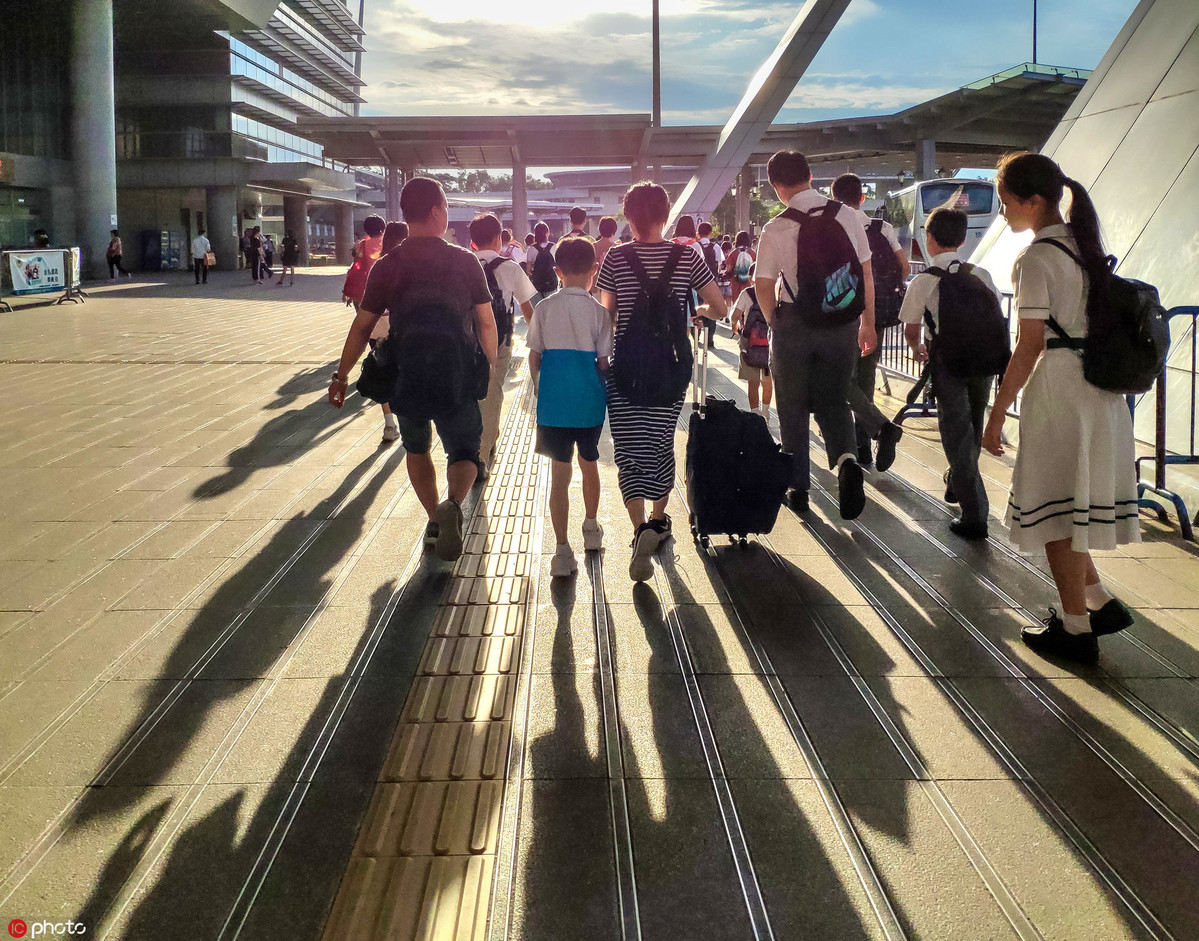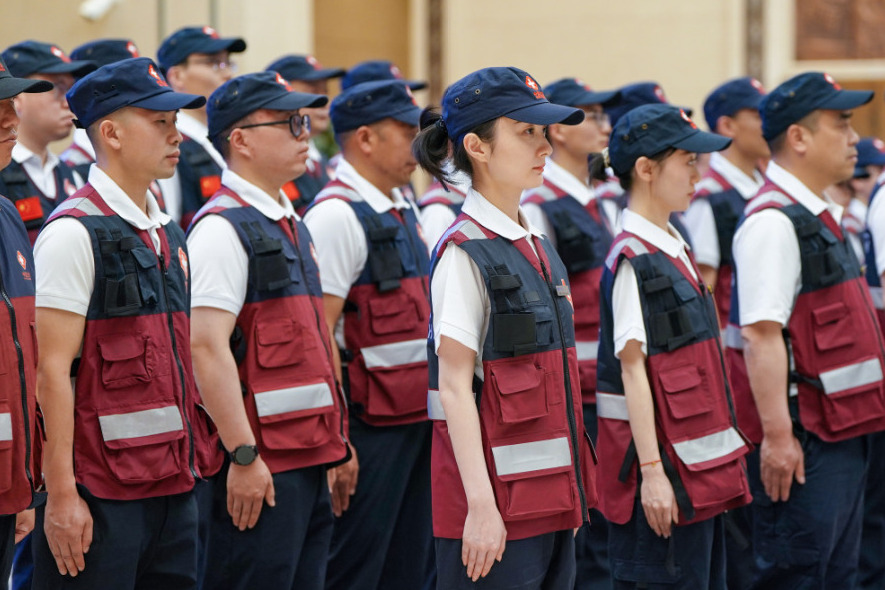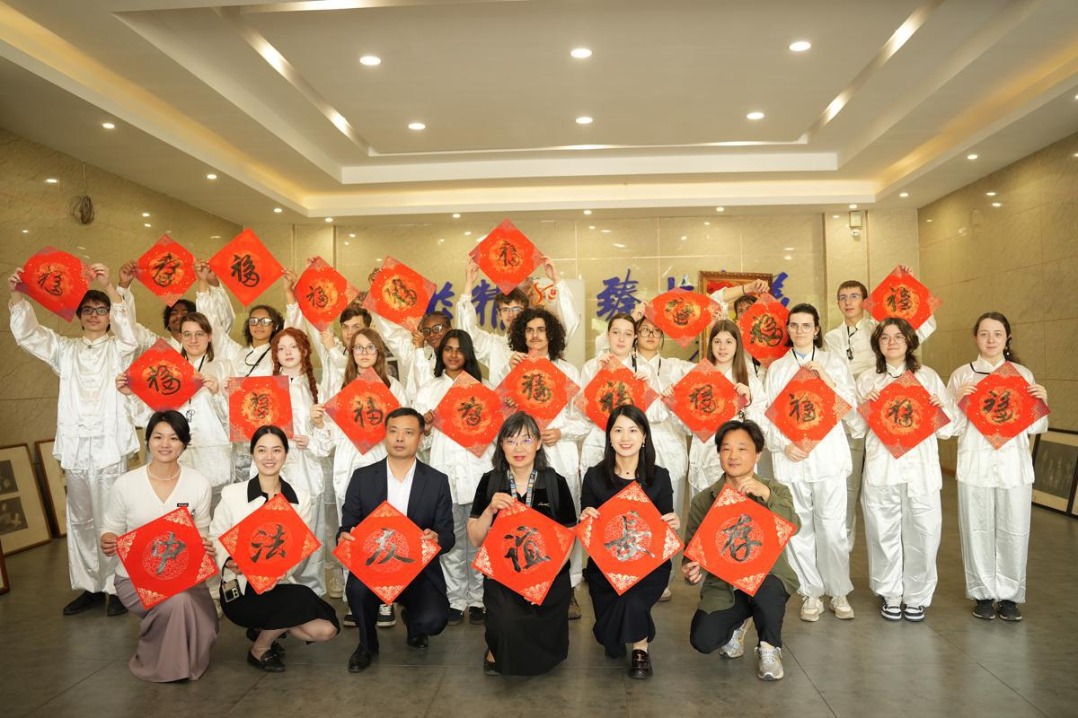To stay or quit — a dilemma for cross-boundary pupils, parents


Hanging on
About 27,000 cross-boundary pupils, who were born in Hong Kong to mainland parents or from local families but live on the mainland, spend hours each day commuting to the city to attend school. Most of them live in Shenzhen.
Helen Chen, who has a 10-year-old daughter, said she saw no reason for her child to quit school in the middle of a school year, with the caveat that Hong Kong cannot slip further into chaos. Her Primary Five daughter studies at a school in Sheung Shui, just 5 kilometers south of Shenzhen.
"I've discussed the matter with other parents at my daughter's school. We believe that before children finish primary school, it's too demanding to go through all sorts of administrative procedures to send our kids to mainland schools," she said.
At the height of the violent protests, classes had to be suspended on school and university campuses across Hong Kong on safety grounds. Parents then began debating over whether to take their children back to the mainland to continue with their schooling.
But, the debate subsided after classes resumed in late November, said Chen. She manages an online chat group where 600 parents discuss how their children can best cope with the impact of the political tempest in schools.
Chen would also prefer her daughter to sit for the Diploma of Secondary Education examination — Hong Kong's college entrance exam — in which a sound performance could ensure opportunities for students to study overseas.
The DSE is perceived less ferocious than the Gaokao exam on the mainland. But, the DSE result is so far acknowledged in 18 developed countries and regions by more than 280 tertiary institutions, including the University of Cambridge and Yale University.
Chen's daughter may also choose to take the mainland's Joint Entrance Exam for Universities, which opens the door for admission to elite universities on the mainland, with lower test scores than her mainland counterparts would need to obtain.
Her daughter is also afraid her academic performance will slide under a different education system. Mainland schools have different exams and curriculum patterns designed to encourage competition. Over and above that, mainland students have learned Mandarin and simplified Chinese characters since they were very young. Hong Kong kids have not.
Secondary school pupils in urban schools on the mainland were judged the best in the world in a global study of student and school performance, released in December by the Organization for Economic Cooperation and Development.
The study assessed the performance of 15-year-olds from 79 education systems around the world in three categories — science, mathematics and reading. Mainland pupils took all the top spots, while their Hong Kong counterparts ranked fourth in both reading and mathematics, and ninth in scientific literacy.
The "back to the north" trend has not really taken hold, said Torres Lee Chi-hung, a coordinator in charge of cross-boundary student services at the International Social Service Hong Kong Branch — a non-profit organization that has more than 8,000 users.
We haven't recorded any case of a school transfer yet, said Lee, although a number of parents did inquire about pulling their kids back to Shenzhen, citing safety reasons.
- Rice gene map to enable breeding of improved varieties
- China dispatches health team to quake-hit Myanmar
- China boosts vaccination accessibility at grassroots
- John Lee: HKSAR govt to press ahead with 15th National Games preparation
- 300-year-old dying tree in China gets second chance at life
- Population of critically endangered diving duck surges in China




































